Best Charging Station for Volkswagen: The Ultimate Guide
June 14 2024
June 14 2024
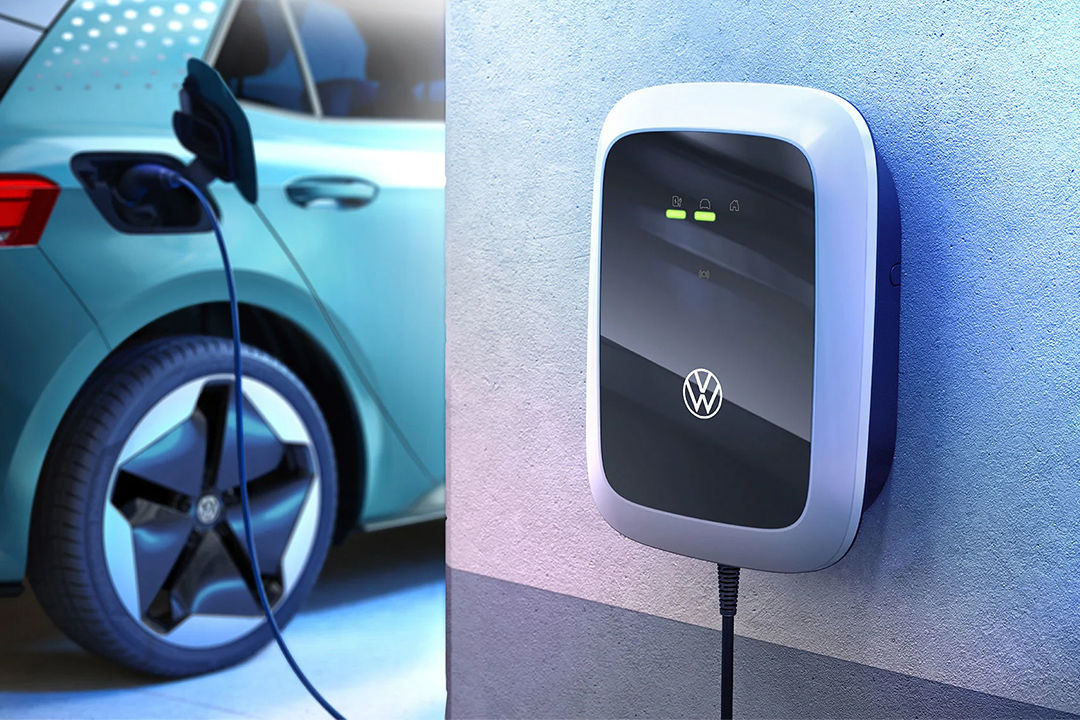
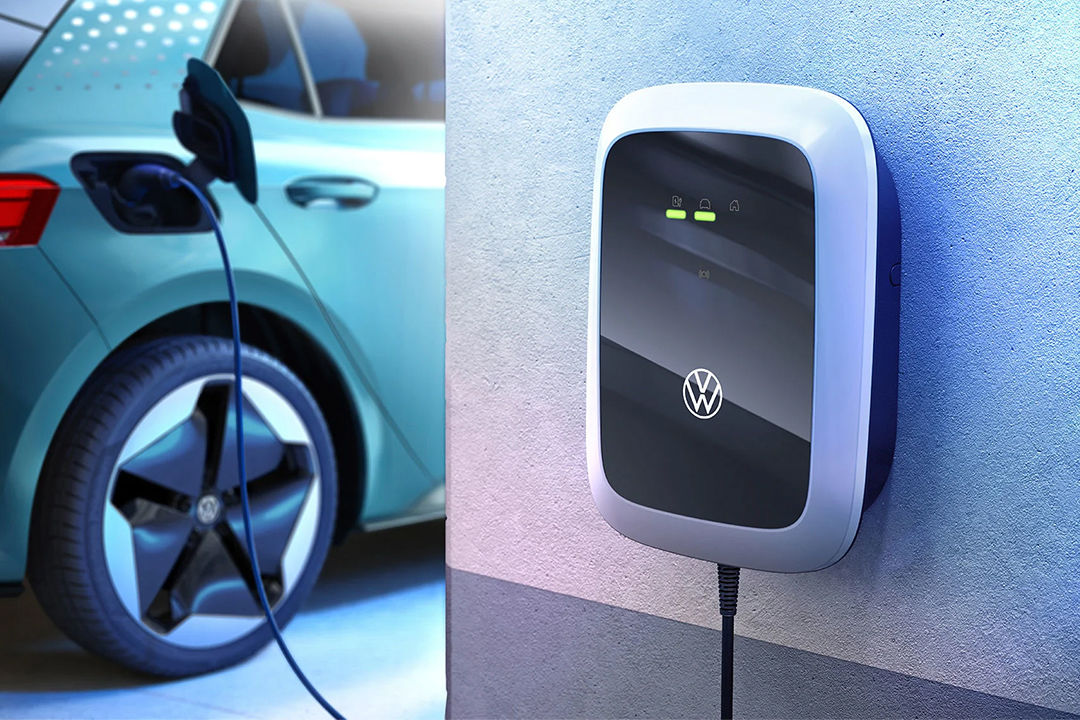
After choosing an electric car, the next step often involves selecting a charging station; however, it can be challenging to navigate through the options. To assist you in navigating the models, we present our ultimate guide! Discover the best charging stations for Volkswagen and find the one that meets your needs.
The power of a charging station determines the speed at which your vehicle will charge. The power of a residential charging station slightly influences its price. Therefore, check your vehicle's capacity, but note that it is sometimes better to invest in a more powerful station rather than one that will soon be obsolete.
The current intensity generally ranges between 15 and 80 amps. For an electric vehicle, a minimum of 30 amps is recommended. In kilowatts, 30 amps correspond to 7.2 kW, and 40 amps to 9.6 kW.
The best charging stations often offer connectivity options, allowing you to control them remotely with your smartphone. If this interests you, start by ensuring that the application is compatible with your smartphone.
Note that several electric vehicles, including electric Volkswagens, are equipped with a mobile app that allows you to check the charging status remotely. Learn more about the features of the 2024 Volkswagen ID.4 and its price.
Connectors are grouped into two categories: permanent or portable. The permanent connector is directly wired into the home's electrical panel. Any connector over 40 amps must be connected to the electrical panel to function at full capacity.
The portable connector, on the other hand, can be used with a NEMA 14-50 or NEMA 6-50 socket. Its advantage is the ability to move it in case of moving or traveling, such as when you go to the cottage or visit friends.
Before choosing your charging station, certain distances must be taken into account. First, consider the distance between the station and your home's Main Low Voltage Panel (MLVP). The shortest distance possible is preferable to connect the station directly to the MLVP.
Then, calculate the distance between the station and your parking space; this could influence your choice regarding cable length. The cable must be long enough to reach your vehicle. Some models come with cables less than 20 ft, while others offer a length of 25 ft.
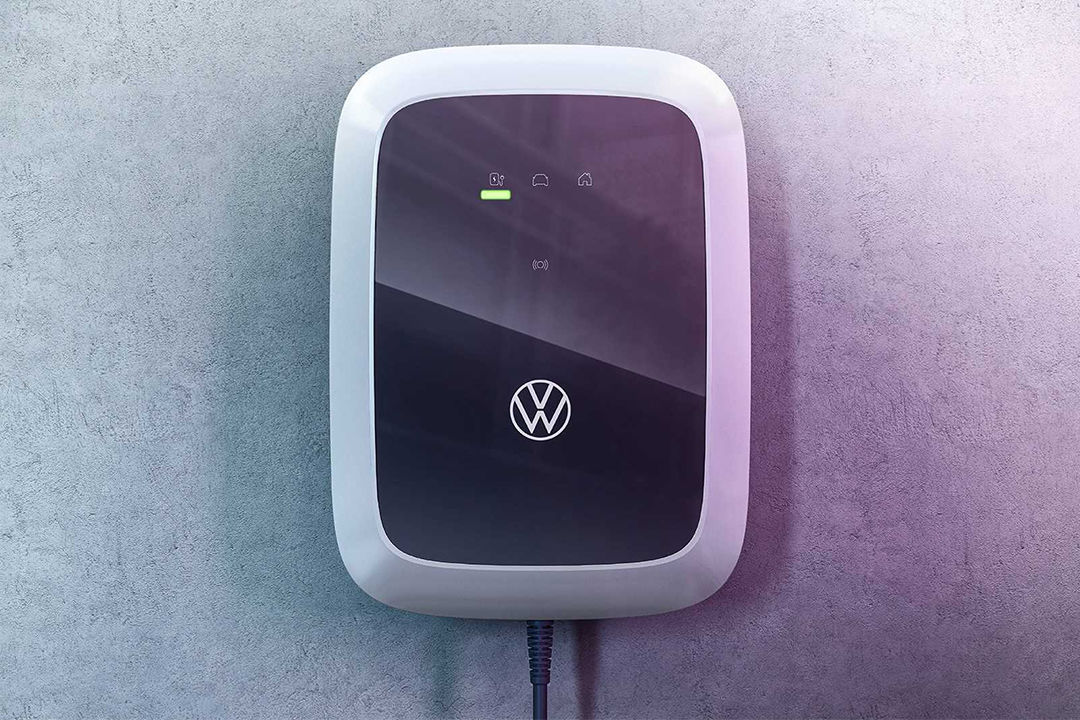
Charging stations can be wall-mounted or pedestal; the latter option is ideal when wall mounting is not possible, offering more flexibility. Stations may or may not be compatible with an outdoor installation. If you need or wish to install it outdoors, you will need to choose a model that is weather-resistant.
Charging stations are also distinguished by their power, divided into three levels:
These are basic stations, usually allowing you to regain 5 km of range per hour of charging. With a level 1 station, you can plug your 120 V charging cable into any household socket to refill at home. Although charging takes time, it is an economical option.
The level 2 station is a more powerful option, allowing you to regain up to 50 km of charge per hour. For instance, with a 240 V level 2 station, the Volkswagen ID.4 can go from 0 to 80% charge in 5.6 hours. This option is often preferred by drivers since it allows you to fully charge overnight.
For this type of station, you need to head to public charging stations. However, it is a very efficient option for a quick energy boost! With a 400 V station, this type allows you to gain several kilometers of range in just a few minutes.
With the ID.4, for example, a rapid charger can regain 168 km in 20 minutes! By the way, find out why this model is among the best electric SUVs.
The Volkswagen charging station is a particularly practical solution for recharging your vehicle. It is undoubtedly one of the best home charging stations: a compact 2-in-1 model with a wall mount to install in the garage, compatible with 120 V or 240 V current. This mobile station is easily transportable, especially when you go somewhere where charging stations are further away!
Additionally, when you purchase one of the Volkswagen electric cars, you are entitled to up to 4 years of rapid charging with Electrify Canada, the country's largest network of level 3 chargers, which is still growing.
Whether you own a Volkswagen electric vehicle or another brand, some stations stand out in the market for their quality. Among the best charging stations, we include the FLO Home X5 model, a Quebec-made model designed to withstand our demanding weather conditions. More affordable, the FLO Home G5 is another good option.
Among the models that stand out, there is also the ChargePoint Home Flex, the highest-rated by Protégez-vous. Energy Star certified, it features flexible settings and adapts well to both indoor and outdoor use.
If you are looking for a more affordable charging station, you might also consider the Grizzl-E, easy to use and install, but a bit less resistant to the cold, or the Autel MaxiCharger Home, which stands out for its practical mobile app.
Overview of the Best Electric Vehicle Charging Stations
| Model | Price | Cable Length | Ampere | Other Features |
|---|---|---|---|---|
| FLO Home X5 | 1440 | 25 ft | 30 A | Connected station, Quebec product, Protection against network fluctuations |
| FLO Home G5 | 1140 | 25 ft | 30 A | Quebec product |
| ChargePoint Homeflex | 1000 | 23 ft | 50 A | Connected station, ChargePoint application, Energy Star Certified |
| Grizzl-E Classic | 580 | 24 ft | 40 A | Connected station, NEMA 6-50 or NEMA 14-50 socket |
| Autel MaxiCharger Home | 750 | 25 ft | 40 A | Autel mobile application, Installation in 8 minutes |
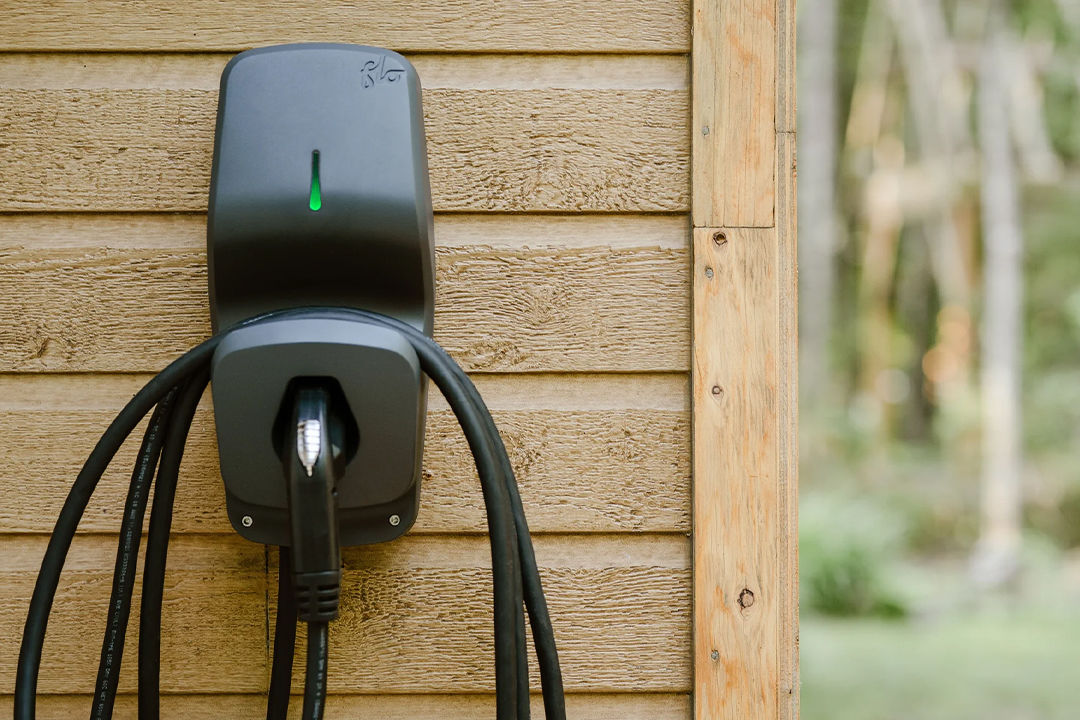
Installing a home electric car charging station involves costs related to the purchase of the station itself as well as installation fees.
On one hand, the station itself has a variable price depending on the model, ranging from less than $600 to more than $1,500. The price depends on:
Most models have a cost ranging between $800 and $1,500. For installation, you will need to hire a master electrician; expect an amount between $700 and $900.
The costs may be higher if you live in a condominium since, once you have obtained authorization from the board, the master electrician will need to determine how to connect the stations to the electricity meters.
The purchase of a station can be made directly from a master electrician, from the station manufacturer, or at your dealership. Inquire at Volkswagen Lauzon Blainville to know your options; we will guide you in the purchase of a new electric vehicle!
Fortunately, you won't have to pay everything out of pocket. Although subsidies for electric vehicles have been reduced, the subsidy for the acquisition and installation of a 240 V station has remained the same. Indeed, the Roulez Vert program allows you to obtain aid totaling $600.
This is in addition to the subsidies you are entitled to when purchasing an eligible electric vehicle, such as the ID.4. Stay tuned for the announcement of the price of the 2024 Volkswagen ID.7, the next electric sedan soon on our roads! Discover all the details in our article.
Our dealership in Blainville, close to Mirabel, supports you in your purchasing process. Is this your first electric vehicle? Our team can guide you! Furthermore, we offer tailored Volkswagen financing solutions that meet your financial needs.
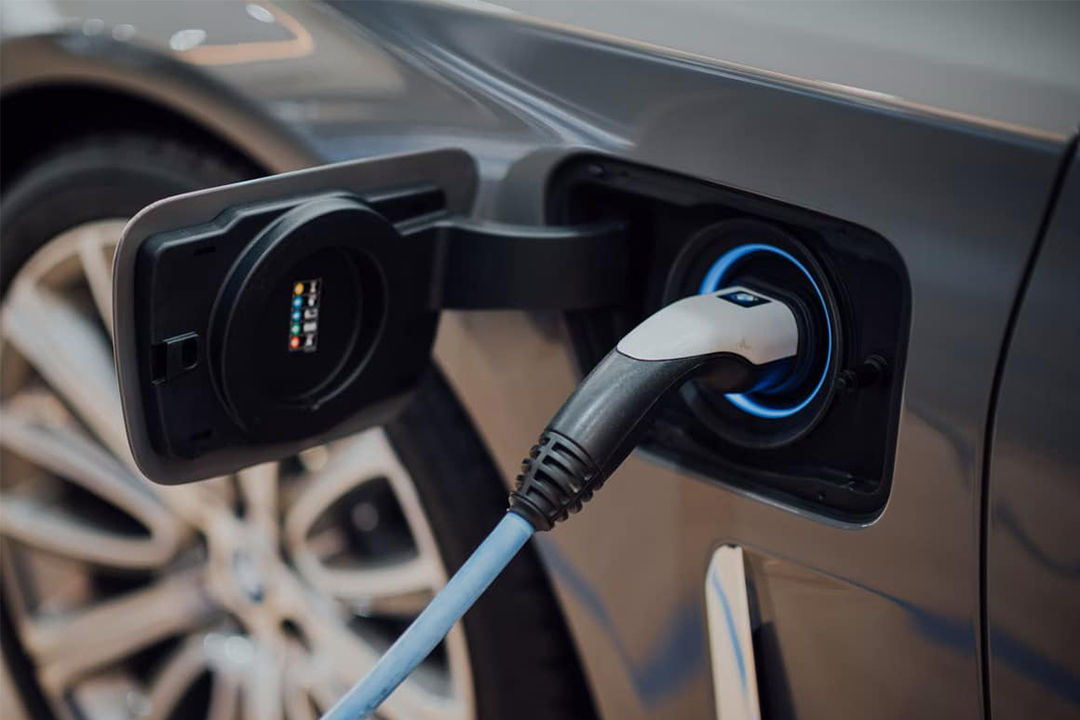
At home, we strongly advise installing a level 2 (240 V) station to recharge your ID.4 in a few hours. To maximize your driving hours, the rapid charging stations in direct current from Electrify Canada are the best for your electric SUV, allowing you to recharge your batteries in just a few minutes!
The difference between the various charging levels is their output power. Level 1 offers the lowest power, equivalent to a standard wall socket. You will thus obtain a slower recharge but will not need to invest in a higher-level station. However, you might still need to install a socket.
Level 2 charging occurs using a 7 kW station on a 240 V circuit. It allows you to regain 100% of your vehicle's range in approximately 8 hours, depending on your car model.
Finally, level 3 charging refers to stations of 50 kW and above. They are ideal when you stop during a long trip to quickly regain energy.
Some charging stations are programmable, but not all. Often, connected (smart) stations offer features like remote programming using a mobile app.
While most stations are fee-based, there are free public stations, which you can locate using the ChargeHub app. With Volkswagen, you can also benefit from up to 4 years of free rapid charges with Electrify Canada.

Other Articles That May Interest You
December 12 2024
The Volkswagen Atlas SUV, the largest of the German manufacturer’s sport utilities, arrived in Volkswagen dealerships in Quebec in 2017. The 2024 Volkswagen Atlas brings with it a few changes for this new model year, like the departure of the V6 engine and the arrival of a special edition −the Peak trim- that is specially designed for off-road driving. This new edition stands out from other...
November 06 2024
Latest Info on the 2025 ID.7 Price of the 2025 Volkswagen ID.7 The sedan’s electric performance Range of the 2025 VW ID.7 : 700 km Technologies ID. 7: Configuration and Style Estimated Arrival Date ID. 7 Specs Takeaway Contact our team The Volkswagen ID.7, whose price in Canada will soon be revealed, will join the ID family at Volkswagen, alongside the ID.4 and the upcoming ID.Buzz! Contact our...
Year
Make
Model
Odometer
Price